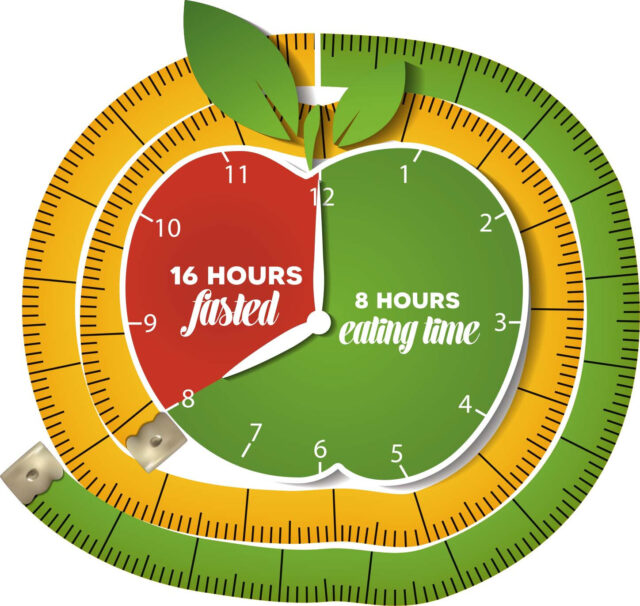
Intermittent fasting is a popular dietary practice that involves alternating periods of eating with periods of fasting. This approach has gained a lot of attention in recent years due to its potential benefits for weight loss and overall health.
In this article, we will explore the benefits of intermittent fasting for weight loss and how it can be incorporated into a healthy lifestyle. Additionally, we will also discuss the benefits of incorporating a nutritious and balanced diet.

What is Intermittent Fasting?
Intermittent fasting involves limiting your calorie intake during certain periods of time, while allowing yourself to eat freely during others. There are several different approaches to intermittent fasting, but the most common ones are the 16/8 method and the 5:2 diet.
The 16/8 method involves fasting for 16 hours and then eating within an 8-hour window. This approach can be achieved by skipping breakfast and only eating during the afternoon and evening.
The 5:2 diet involves eating normally for five days of the week and then consuming only 500-600 calories on the remaining two days.
The Benefits of Intermittent Fasting for Weight Loss
One of the primary benefits of intermittent fasting is that it can lead to weight loss. When you limit your calorie intake during certain periods of time, your body is forced to use stored fat as fuel. This can help you lose weight without having to restrict your food intake during the entire day.
Additionally, intermittent fasting can also increase your metabolism and help you burn more calories throughout the day.
Intermittent fasting has also been shown to have other health benefits beyond weight loss. For example, it can improve insulin sensitivity, lower inflammation, and reduce the risk of chronic diseases such as heart disease and diabetes.

Incorporating a Balanced Diet with Intermittent Fasting
While intermittent fasting can be an effective way to lose weight and improve overall health, it is important to also focus on maintaining a balanced and nutritious diet. One way to achieve this is by incorporating a rice and chicken dish into your meals.
Rice is a great source of complex carbohydrates, which provide energy and help you feel fuller for longer periods of time. Additionally, rice is also rich in fiber and essential nutrients such as magnesium and selenium.
Chicken is a lean source of protein that can help you maintain muscle mass while losing weight. When combined, a rice and chicken dish can provide a balanced and nutritious meal that can be easily incorporated into a healthy lifestyle.
Getting Started with Intermittent Fasting
If you’re interested in trying intermittent fasting, there are a few things to keep in mind. First, it’s important to ease into it gradually. Start by skipping breakfast and then gradually extend the fasting period over time.
It may also be helpful to start with the 16/8 method, as it is easier to incorporate into your daily routine. It’s also important to stay hydrated during the fasting period, so be sure to drink plenty of water and other non-caloric beverages.

Recommendations and Warnings
- While intermittent fasting can be safe and effective for many people, there are some important considerations to keep in mind.
- It’s important to speak with your healthcare provider before starting any new diet or exercise program, especially if you have any underlying health conditions or are taking any medications.
- Additionally, intermittent fasting may not be appropriate for everyone, such as pregnant or breastfeeding women, children, and those with a history of eating disorders.
- If you do decide to try intermittent fasting, it’s important to listen to your body and be mindful of any negative symptoms.
- Some people may experience headaches, dizziness, or fatigue during the fasting period, which can be a sign that the body is not receiving enough nutrients.
If you experience any negative symptoms, it’s important to stop the fasting period and consult with your healthcare provider.
Determining if Intermittent Fasting is Right for You
While intermittent fasting can have numerous benefits, it’s important to determine if it’s the right approach for you. Before starting, consider your overall health, lifestyle, and goals.
If you have any underlying health conditions or concerns, it’s important to speak with your healthcare provider to determine if intermittent fasting is safe and appropriate for you. Additionally, it’s important to consider your daily routine and schedule.
If you have a physically demanding job or are very active, intermittent fasting may not be the best approach for you.

Other Popular and Healthy Diets for Weight Loss
In addition to intermittent fasting, there are several other popular and healthy diets that can help you lose weight and improve your overall health. Here are a few examples:
- Mediterranean Diet: The Mediterranean diet is a plant-based diet that focuses on whole, unprocessed foods like fruits, vegetables, whole grains, nuts, seeds, and legumes. It also includes healthy fats like olive oil, fish, and lean protein sources like chicken and turkey.
- Low-Carb Diet: A low-carb diet is a diet that limits or eliminates carbohydrates, such as bread, pasta, and sugary foods. Instead, it focuses on high-protein foods like meat, fish, eggs, and vegetables. This diet can be effective for weight loss and can also improve blood sugar control for people with diabetes.
- Plant-Based Diet: A plant-based diet is a diet that focuses on whole, plant-based foods like fruits, vegetables, whole grains, nuts, seeds, and legumes. It typically excludes or limits animal products like meat, dairy, and eggs.
- Paleo Diet: The paleo diet is a diet that focuses on whole, unprocessed foods like meat, fish, vegetables, fruits, nuts, and seeds. It excludes processed foods, grains, and dairy products. This diet can be effective for weight loss and can also improve blood sugar control for people with diabetes.
- DASH Diet: The DASH (Dietary Approaches to Stop Hypertension) diet is a diet that focuses on whole, unprocessed foods like fruits, vegetables, whole grains, lean protein sources like chicken and fish, and low-fat dairy products.
Undoubtedly, intermittent fasting is a popular dietary practice that can have numerous benefits for weight loss and overall health.
By limiting your calorie intake during certain periods of time, you can lose weight without having to restrict your food intake during the entire day.
Remember, it is important to consult with your healthcare provider before starting any new diet or exercise program to ensure that it is safe and appropriate for your individual needs.









